Advent begins the liturgical year of the church. The season’s focus is on the future; the Latin term adventus refers to what is coming from the unknown that always lies ahead in human experience. The First Sunday’s readings epitomize this focus by reaching their climax in the passage from Matthew’s Gospel. Here the condition of humanity at the time of Noah’s Flood is compared to its present condition, which awaits judgment by Jesus as the Son of Man. Paul’s charge to the Romans reminds his readers that the light that comes to illuminate all things at the end of time is present already as an imperative of ethical transformation. Special consideration is accorded the Scriptures of Israel during Advent, because they articulate promises which Jesus and the New Testament insist are in the process of being realized. Isaiah, in a classic passage of prophecy, envisions universal peace and a gathering of all nations at Mount Zion. The celebration of Jerusalem in Psalm 122 within this cycle of readings conveys a sense of a glorious past as prelude to the final glory of the future.
The First Reading
Isaiah 2:1-5
A Promise of Justice and Peace
Isaiah’s vision is set at the end of a critical period of time, “after these days.” Following chapter 1 with its strong assertion of God’s judgment against injustice, it offers assurance of God’s ultimate reign. The vision shows humanity gathering at the Temple in Jerusalem, in the region of Judah, to learn God’s ways as the revealed guide for their conduct. It promises that divine justice, rendered by God among all peoples, will abolish war and even the weapons of war.
—
- The promise that Isaiah ben Amotz saw with regard to Judah and Jerusalem—
- It shall be after these days:
The mountain of the Lord’s Temple shall be established first among the mountains,
exalted above the hills.
All the nations shall stream to it. - And many peoples will go and say:
“Come, let us go up to the Lord’s mountain,
to the Temple of the God of Jacob.
God will instruct us from God’s own ways,
so that we will walk in those paths.”
For instruction stems from Zion,
the word of the Lord from Jerusalem. - The Lord shall sit as judge among the nations,
rendering justice for many peoples.
They will pound their swords into plow-blades
and their spears into pruning shears.
Nation will not raise the sword against nation;
they will no longer even give war a thought. - House of Jacob, come, let us walk in the Lord’s light!
The Psalm
Psalm 122
A Pilgrim’s Ode to Jerusalem
Expressing great joy at having reached Jerusalem, a pilgrim praises the city as a spiritual center (the location of God’s Temple) and national home (the seat of the throne of David). The psalm dates from after the Babylonian Exile (586-538 BCE), which had seen the Temple destroyed and Jerusalem devastated. It reflects the deep and continuing Jewish connection to God’s chosen city, especially the joy brought by Jerusalem’s having been rebuilt and restored to splendor.
—
- I rejoiced when they said to me,
“Let us go to the Temple of the Lord!” - Our feet were standing within your gates, Jerusalem:
- Jerusalem, built up, as a city united all together;
- the city to which the tribes went up as pilgrims—
the tribes of Yah!—
a witness for Israel, to give thanks to the name of the Lord. - For there sat the thrones of judgment,
the thrones of the House of David. - Pray for the peace of Jerusalem!
May those who love you, Jerusalem, find well-being. - May there be peace on your ramparts,
well-being in your royal halls. - For the sake of my family and friends,
I do pray for your peace. - For the sake of the Temple of the Lord, our God,
I seek your welfare.
The Second Reading
Romans 13:11-14
Admonition to Moral Alertness in Anticipation of the Lord’s Arrival
After citing hymnic material known in the Roman house churches, the Apostle Paul offers moral instruction that builds upon the hymn’s outlook on final salvation and judgment. Paul challenges his listeners to live according to the new age that has dawned with the heightened expectation that their salvation is soon to arrive.
—
Know the significance of this time—
“The hour has already come for you to wake from sleep:
Even now our salvation is nearer than when we first believed.
The night is about over, the day draws near.
So then, let us put aside the works of darkness,
and wrap ourselves in the weapons of light.”
As in the daytime, let us conduct ourselves properly, not in partying and drunkenness, not in immoralities and indecency, not in bitter conflict and jealousy. Instead, wrap yourself in the Anointed Lord Jesus and do not encourage the flesh’s inclination to lust.
The Gospel
Matthew 24:36-44
The Unexpected Coming of the Son of Man
Advent readings point to the future as the time when God’s reign will at last be fulfilled. Still, these readings insist that God does not operate according to any schedule that people can know. Matthew’s presentation of this teaching expands on this point by comparing the present to the condition of humanity just prior to Noah’s Flood. Because people cannot know God’s timetable, one must live as though judgment is imminent, attending to God’s works and ways in the present. The passage closes with a call for such preparation.
—
“Concerning that day and hour,” [Jesus said to his committed students], “no one knows, neither the messengers of heaven nor the Son, but only the Father. Exactly as the days of Noah were, so will be the Son of Man’s arrival for judgment. As in those days before the flood people simply went about eating and drinking, marrying and giving in marriage until the day Noah entered the ark, and they were oblivious till the flood came and took everyone—so the Son of Man’s arrival for judgment will be. Then there will be two in the field: one taken away and one left. Two grinding at the mill: one taken away and one left. Be alert, then, because you do not know on which day your Lord comes! But this you do know: a householder who had known the nightwatch in which the thief was coming would have stayed alert and would not have permitted the home to be broken into! For this reason, prepare yourselves: the Son of Man comes at an hour you cannot discern.”

